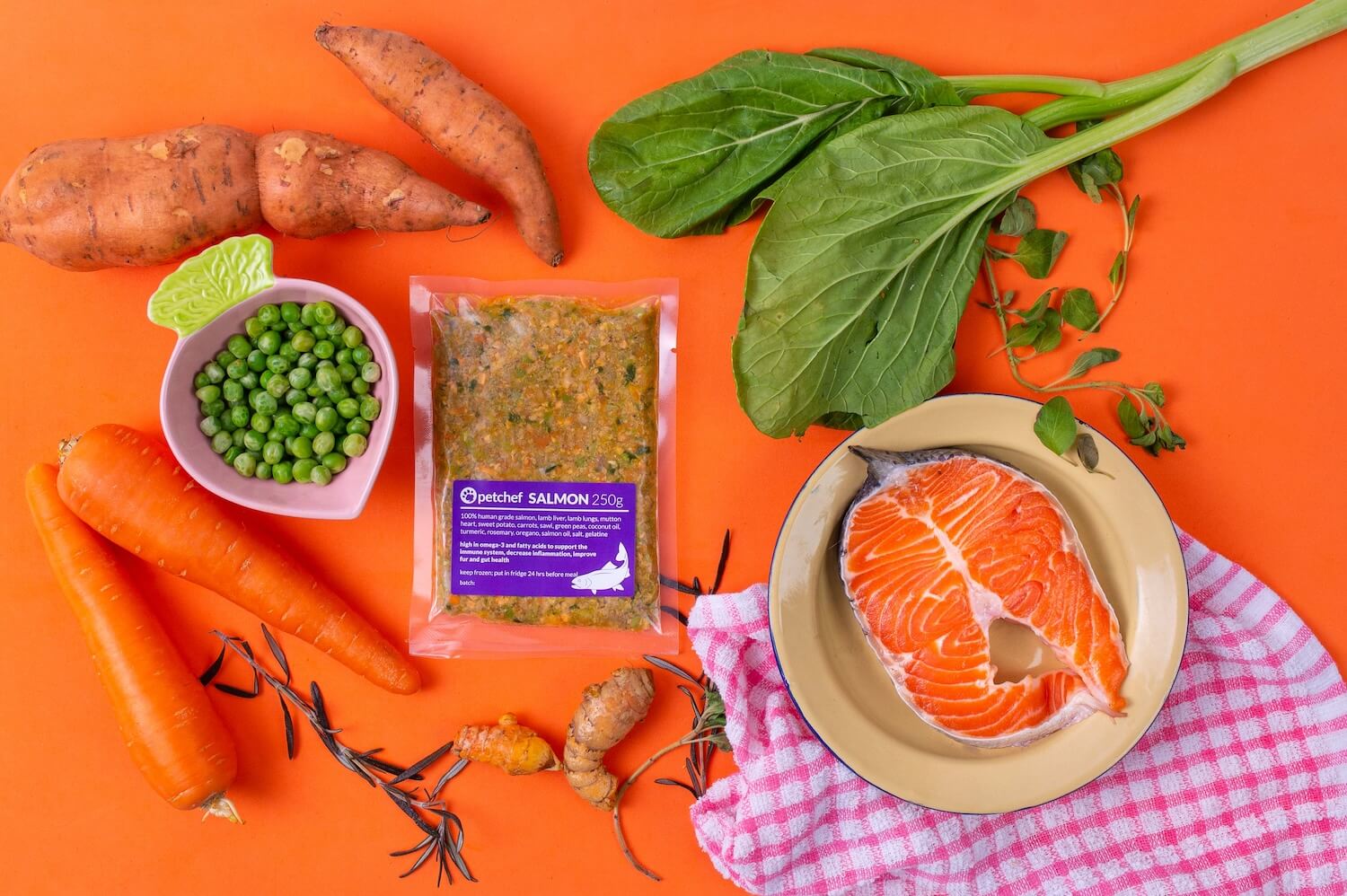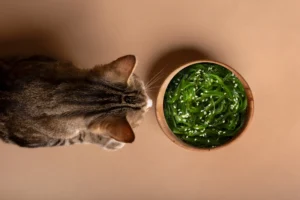Disclaimer: Always check with your vet on what “human foods” your dog can and cannot eat as information may vary based on their dietary needs and health conditions.
Grapes and raisins belong to the same family of fruits that are toxic to dogs. The exact substance that causes this toxicity is not yet known, but it can cause severe health issues, including kidney failure.
Read on to learn more about why grapes are bad for your dog, the symptoms of grape toxicity in dogs, and what to do if your dog has accidentally eaten grapes.
Table of Contents
Can dogs eat grapes?
No, dogs should not eat grapes. Grapes and raisins are toxic to dogs and can cause severe health issues, including kidney failure. Even a small amount can be dangerous, so it’s important to keep grapes and raisins away from dogs.
If a dog accidentally eats grapes or raisins, it’s best to contact a veterinarian immediately.
Symptoms of grape or raisin poisoning in dogs
Symptoms of grape or raisin poisoning in dogs can vary, but common signs include:
- Vomiting (often within a few hours of ingestion).
- Diarrhea.
- Loss of appetite.
- Lethargy or weakness.
- Abdominal pain (e.g., whining, reluctance to move).
- Dehydration (e.g., dry nose and gums, excessive panting).
- Increased thirst or urination (early stages of kidney failure).
- Reduced or no urination (advanced kidney failure).
- Tremors or seizures (in severe cases).
- Foul-smelling breath.
If you suspect your dog has eaten grapes or raisins, seek veterinary help immediately. Quick treatment can significantly improve the chances of recovery.
What to do if your dog ate grapes or raisins?
If your dog has eaten grapes or raisins, here are 3 steps for quick action:
- Keep calm & remove any remaining grapes or raisins
- staying calm may also help your dog to be calmer
- removing any remaining fruits can prevent your dog from going for more especially if they appeared to be having a great time eating it before they were stopped
- you may want to keep a sample of the raisin and grape for your vet’s inspection as well
- Call your vet
- even if your dog isn’t showing symptoms, call your vet immediately. Provide details about the type and amount of grapes or raisins consumed.
- follow their advice, which may include bringing your dog in for examination.
- Monitor your dog
- keep an eye on your dog for any symptoms of poisoning, such as vomiting, diarrhoea, or lethargy.
Important
Do Not Induce Vomiting Yourself as it can sometimes cause more harm than good.
Which is why at Petchef, we ensure that all the ingredients that go into our dog food recipes are made of fresh, clean ingredients only! All the meals tailored for dogs contain:
50%+ meat (chicken, buffalo, beef, salmon, tuna, duck, etc)
45%+ vegetables and broth for additional nutrients
3.5% herbs and oils
It’s completely free of preservatives, additives, fillers and grains! If you’d love for your dog to eat the food they were born to eat, come have a chat with our friendly pet nutritionist to find the ideal meal for your pet
Quick action is crucial, so don’t hesitate to seek veterinary help if you suspect your dog has consumed grapes or raisins! Even a small amount of grapes or raisins can be toxic to some dogs, so act fast.
Treatment of poisoning in dogs
Great job, you’ve gotten your dog to the vet and told them all about what happened! If your dog is diagnosed with poisoning, the treatment will depend on the severity of the situation and how long ago the grape or raisin was ingested. Possible treatments may include:
Inducing vomiting
If the ingestion was recent (usually within a couple of hours), the vet may induce vomiting to remove the substance from the stomach.
Activated charcoal
Administering activated charcoal can help prevent further absorption of the toxins into the bloodstream.
Additional treatments would look like:
Intravenous (IV) Fluids
IV fluids may be provided to help flush the toxins from the system, maintain hydration, and support kidney function.
Medications
Anti-nausea medications to help manage vomiting.
Anti-seizure medications if the dog is experiencing seizures or severe tremors.
Heart medications if there are signs of cardiovascular issues.Monitoring
The vet may want to monitor your dog’s heart rate, blood pressure, and overall condition to ensure there are no severe complications.
In more serious cases, hospitalisation may be required for close observation and treatment. Always follow your vet’s instructions for treatment and care.
How to prevent grape or raisin poisoning in dogs?
Keeping their curious paws away from something that could potentially harm them requires several proactive measures such as:
- Keep grapes and raisins out of reach in sealed containers or high cabinets. If your doggo has the habit of going through your trash, ensure leftovers containing these foods (like trail mixes or baked goods) are kept securely away.
- Educate family, friends and your guests on the dangers of raisins and grapes to dogs so they will know not to give into their puppy eyes or to check with you before feeding your dog any snacks.
- Read the labels to know whether certain baked goods, candies and snacks contain raisins or grapes and should not be given to your dog. Alternatively, provide dog-safe treats so they don’t feel the need to sneak a bite of potentially harmful human snacks.
Preventing access to grapes and raisins is the best way to protect your dog from poisoning. Being proactive ensures their safety and your peace of mind.











